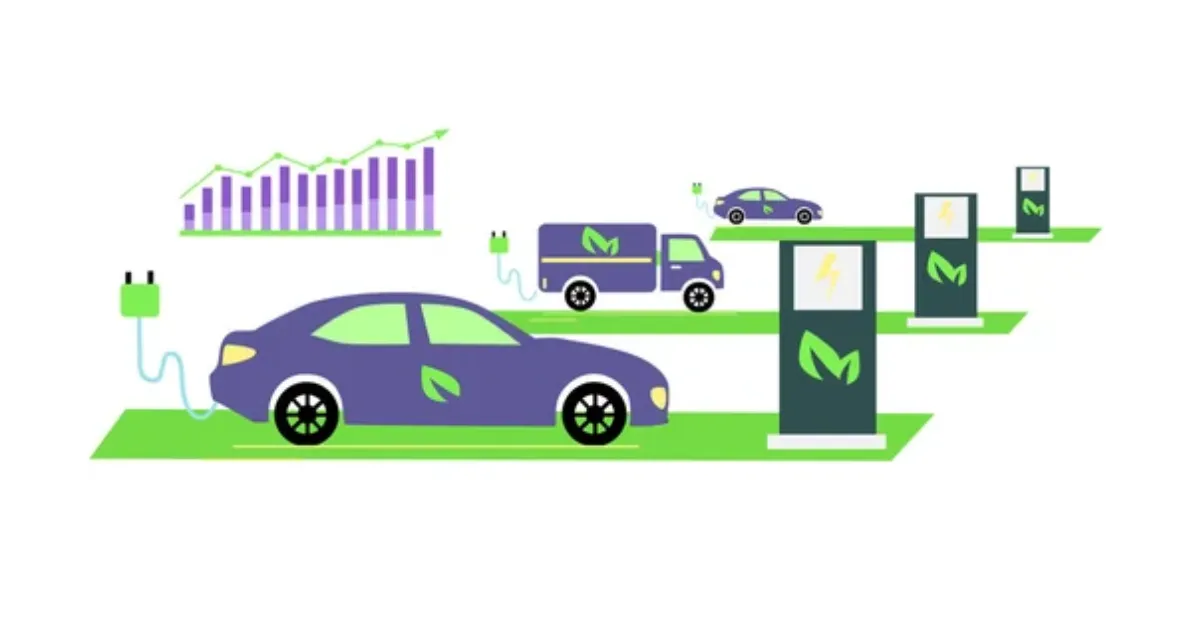

Electric vehicles (EVs) have been gaining popularity in India, thanks to government subsidies that made them more affordable. However, this could soon change.
Recently, Nitin Gadkari, India’s Minister of Road Transport and Highways, suggested that these subsidies may come to an end. This means the cost of buying an electric car could increase significantly.
Over the past few years, India’s EV market has seen a boom. The government has been encouraging people to switch to electric vehicles as part of a broader plan to reduce pollution and lower the country's carbon footprint.
Financial incentives helped cut the price gap between EVs and traditional petrol or diesel cars. But now, with the possibility of these subsidies being removed, buyers might feel a pinch in their wallets.
Nitin Gadkari believes that the EV market in India has matured enough to stand on its own. He explained that the demand for electric vehicles is already growing, even without subsidies.
According to him, companies are making good progress in developing new technology and infrastructure to support EVs. Because of this, the government feels it may no longer need to provide financial support.
In his recent statement, Gadkari mentioned that while subsidies have been helpful in the early stages, it’s time to move forward. The government wants carmakers to focus on innovation, efficiency, and cost-cutting rather than relying on subsidies to make sales.
This shift could mean higher prices for electric cars, at least in the short term.
Subsidies have played a huge role in making EVs affordable. Buyers received discounts on electric vehicles under schemes like the FAME II (Faster Adoption and Manufacturing of Electric Vehicles) initiative.
For example, electric two-wheelers and four-wheelers became much cheaper thanks to these financial benefits. This encouraged many people to consider EVs over traditional fuel-powered vehicles.
The subsidies also helped car manufacturers invest in better technology and battery solutions. As a result, we have seen more reliable and longer-lasting EVs hit the market. However, if these subsidies end, the cost of manufacturing and buying an EV will likely rise, which could slow down the EV adoption rate.
If the government removes subsidies, people looking to buy electric cars may have to pay a lot more. The price of some popular electric cars could increase by several lakhs.
For example, if a car currently costs around ₹15 lakh with subsidies, it might jump to ₹18 lakh or more without them. This could make EVs less attractive, especially for middle-class families who are price-conscious.
People who were considering making the switch to electric might now hesitate or even change their minds. Petrol and diesel cars might seem like a safer or more affordable option, at least for now.
This change could also affect electric two-wheelers, which have been selling well because of their lower prices compared to four-wheelers.
One of the biggest reasons the government has been pushing EV adoption is to reduce pollution and fight climate change.
Cities like Delhi, Mumbai, and Bengaluru face serious air quality issues, and electric vehicles are seen as a big part of the solution.
If subsidies end and fewer people buy EVs, pollution levels might not decrease as quickly as hoped. The government’s goal of making India a major hub for electric vehicles by 2030 could also face delays.
However, Gadkari is confident that the growing market and improvements in EV technology will eventually balance things out.
Indian carmakers and EV companies are watching this situation closely. Some companies have already started preparing for a future without subsidies by focusing on lowering production costs.
Companies like Tata Motors, Mahindra, and Ola Electric are investing heavily in research and development to make their EVs more affordable without government support.
Many automakers are also expanding their electric vehicle range to give customers more options. They hope that as technology advances, EV prices will naturally come down, even without subsidies. But this could take time, and until then, higher prices might slow down sales.
The possible end of subsidies could be a bump in the road for India’s EV market. While the government believes the industry can stand on its own, the reality is that many people still find EVs expensive. Without subsidies, the cost of electric cars could discourage potential buyers.
However, the future still looks bright. As more carmakers invest in new technologies and the charging infrastructure improves, prices might eventually drop. For now, if you’re thinking about buying an electric vehicle, it might be a good idea to make your move sooner rather than later.
Overall, ending subsidies will be a test for India’s electric vehicle market. If the market can survive and grow without financial support, it will show that EVs are here to stay. For car buyers, the next few months could be crucial.
If you want to enjoy the benefits of lower prices, now might be the best time to buy an electric vehicle before the expected price hikes.
Electric vehicles are still the future, and while challenges lie ahead, India’s journey towards a cleaner, greener future is far from over.
Also Read: